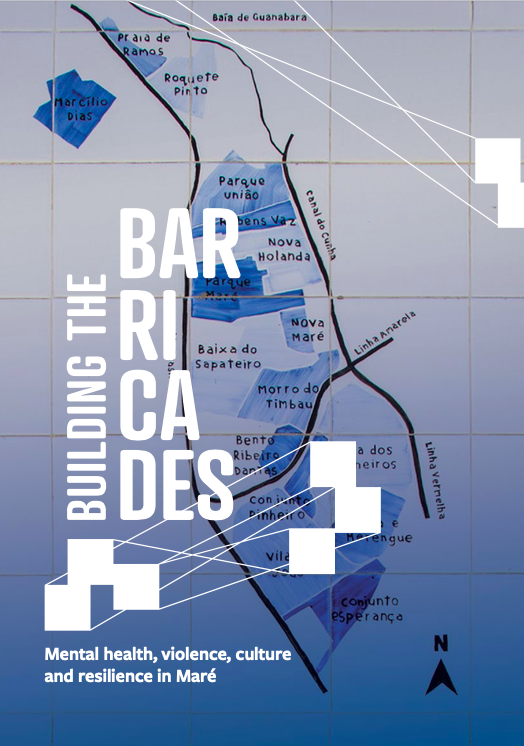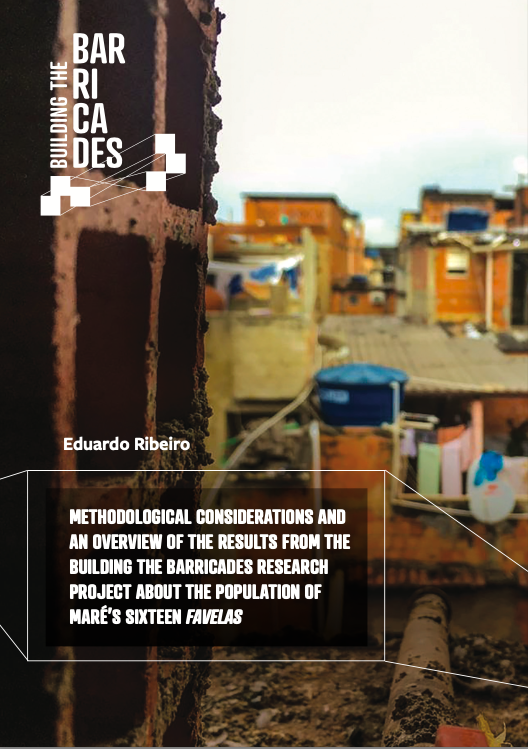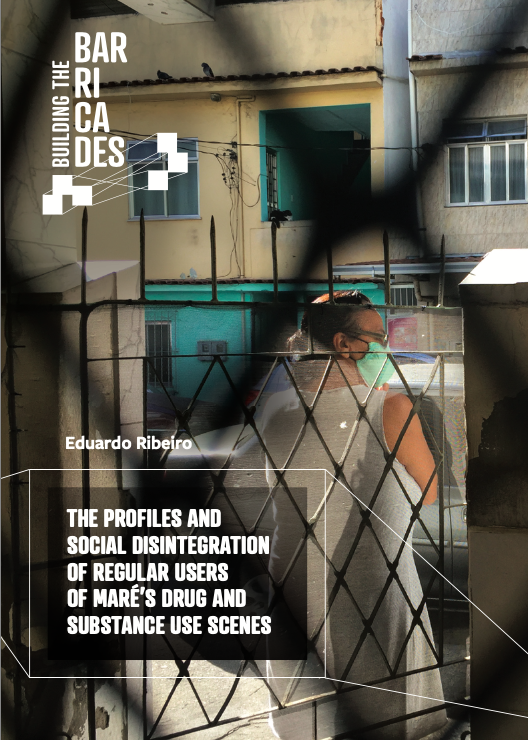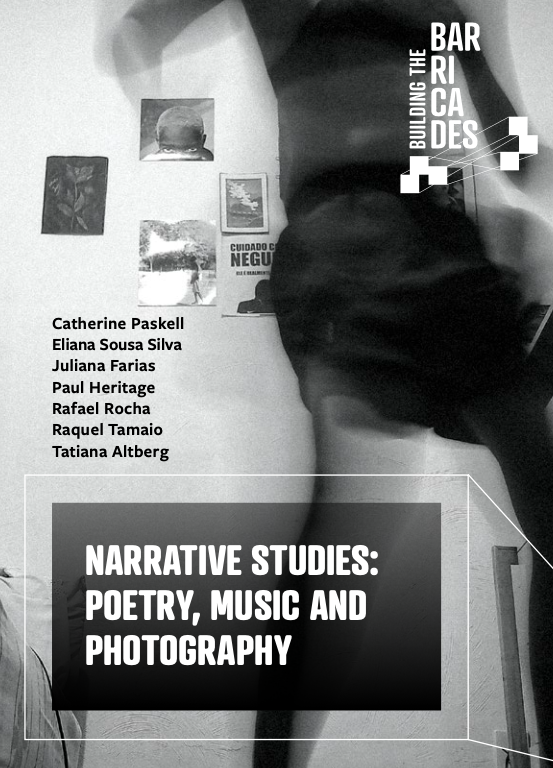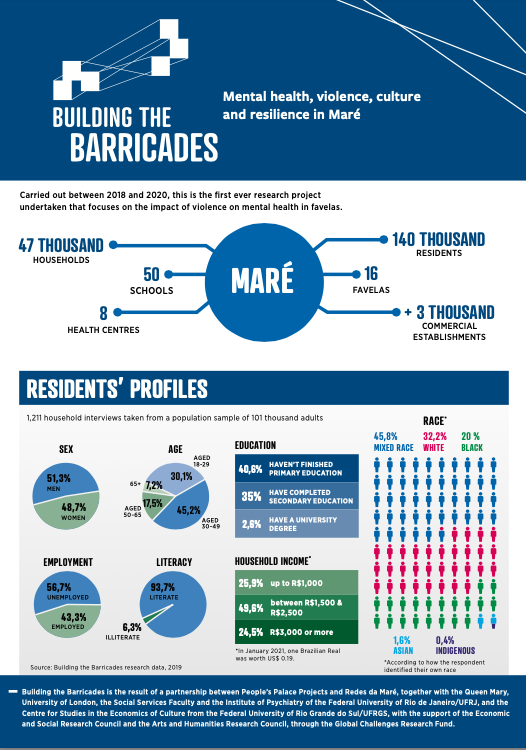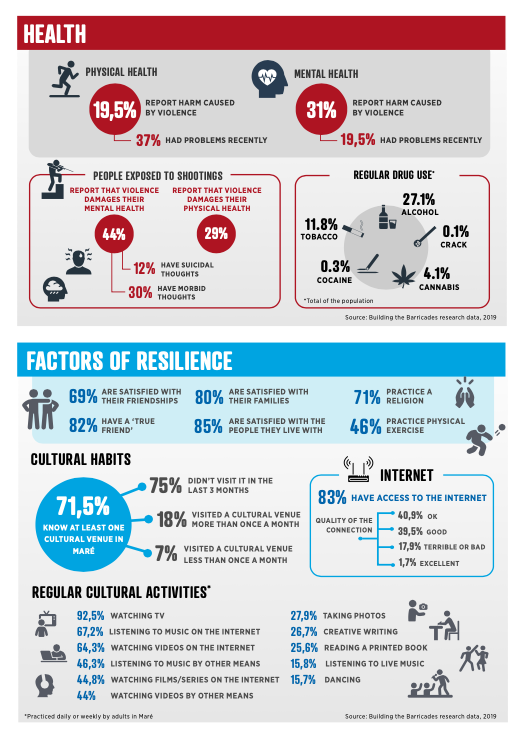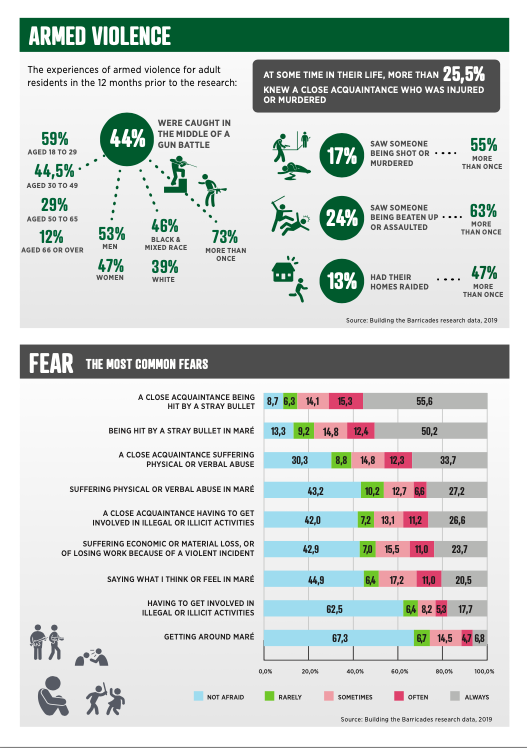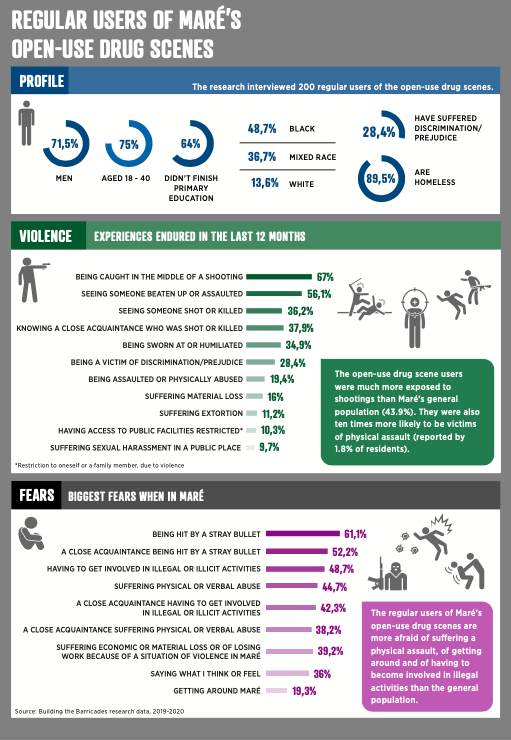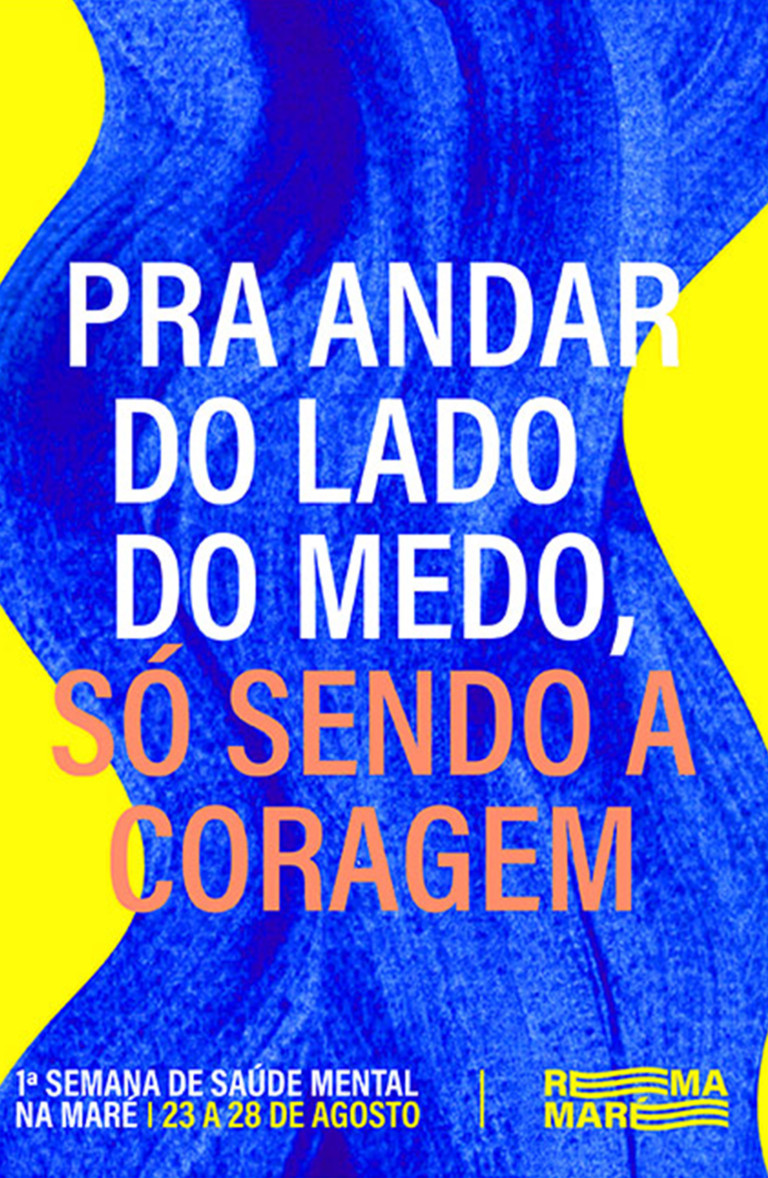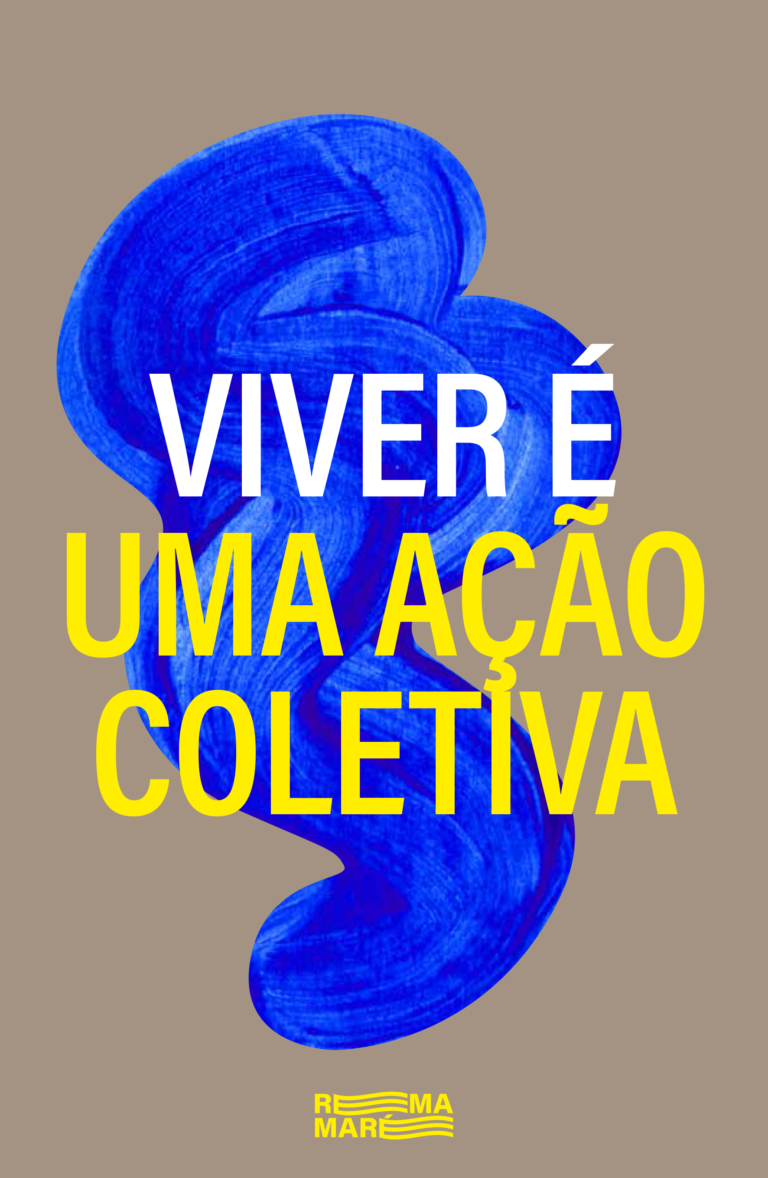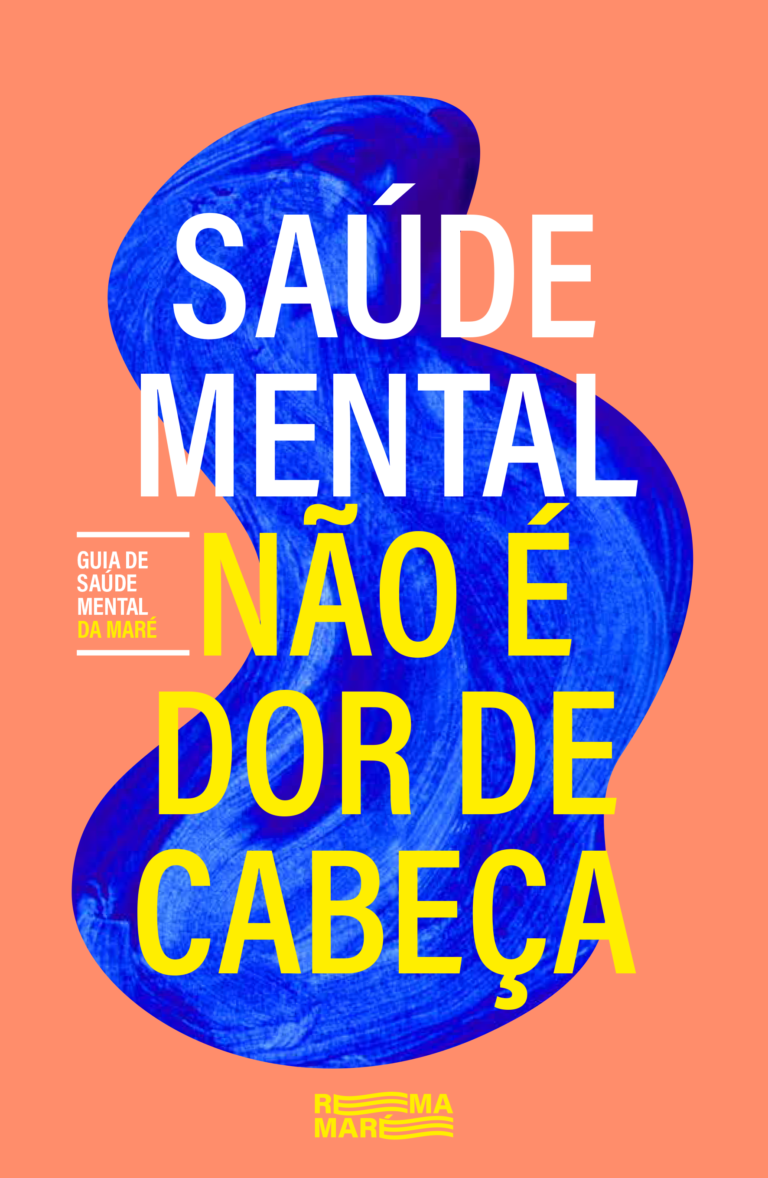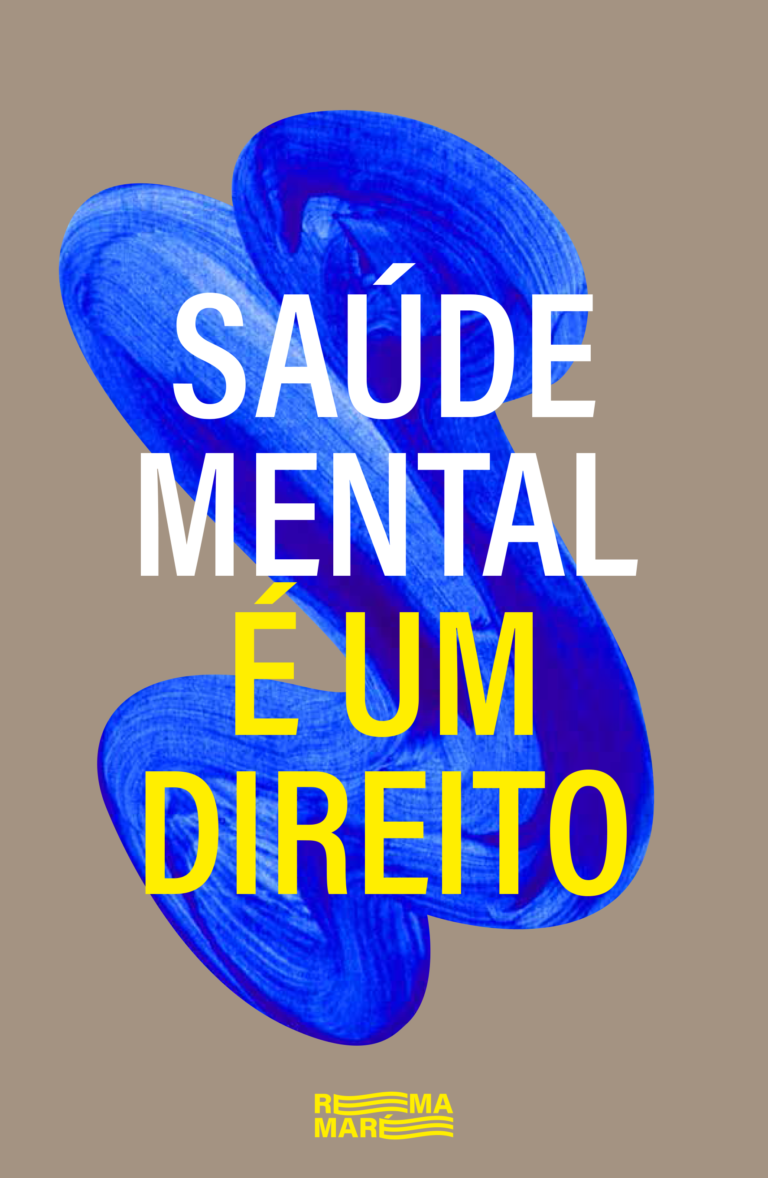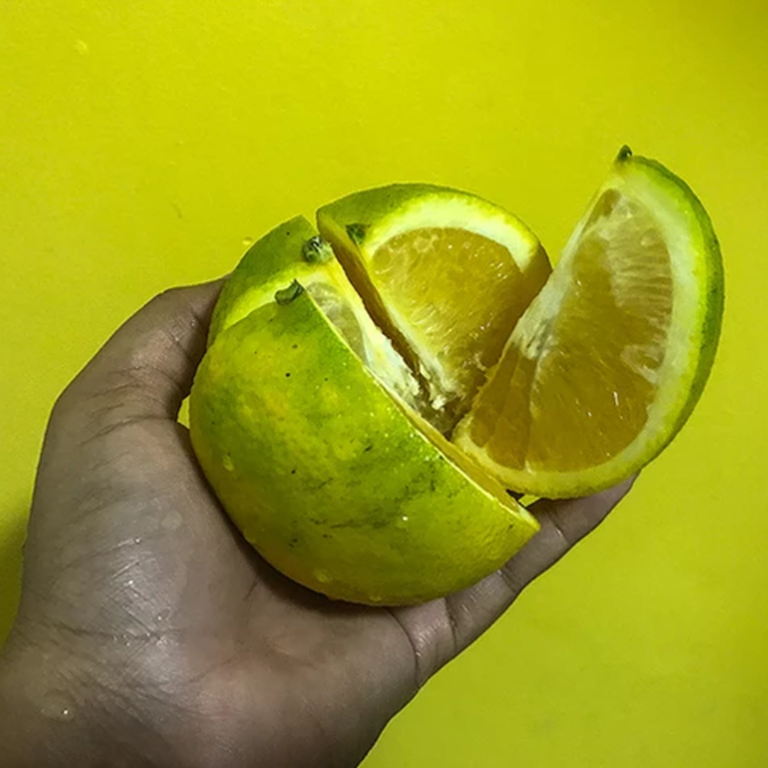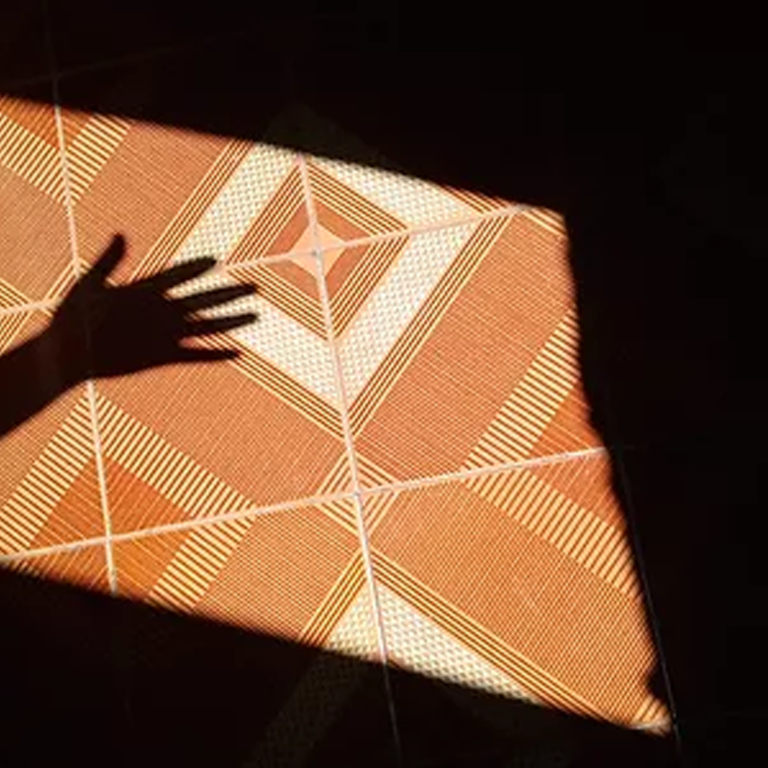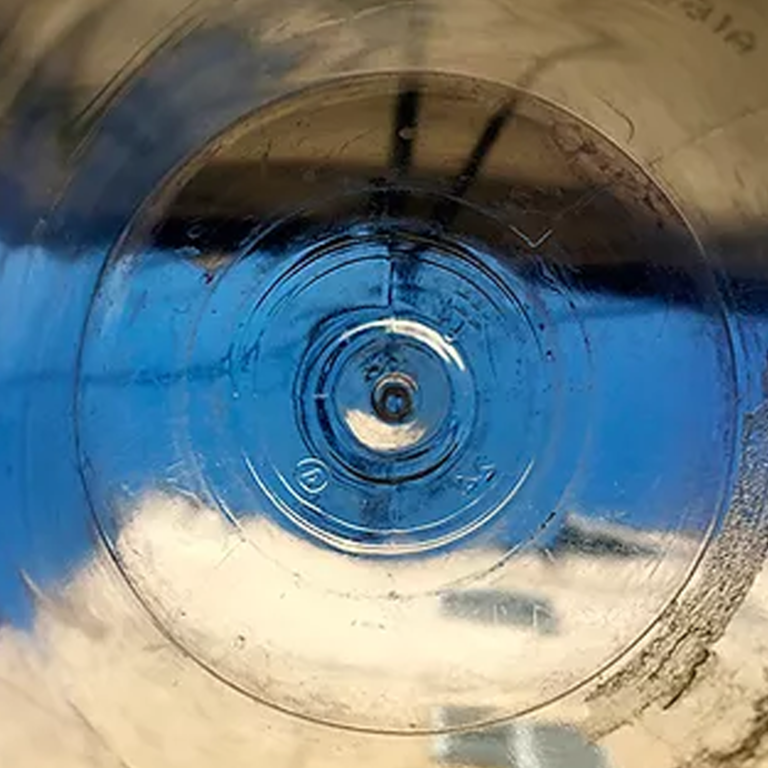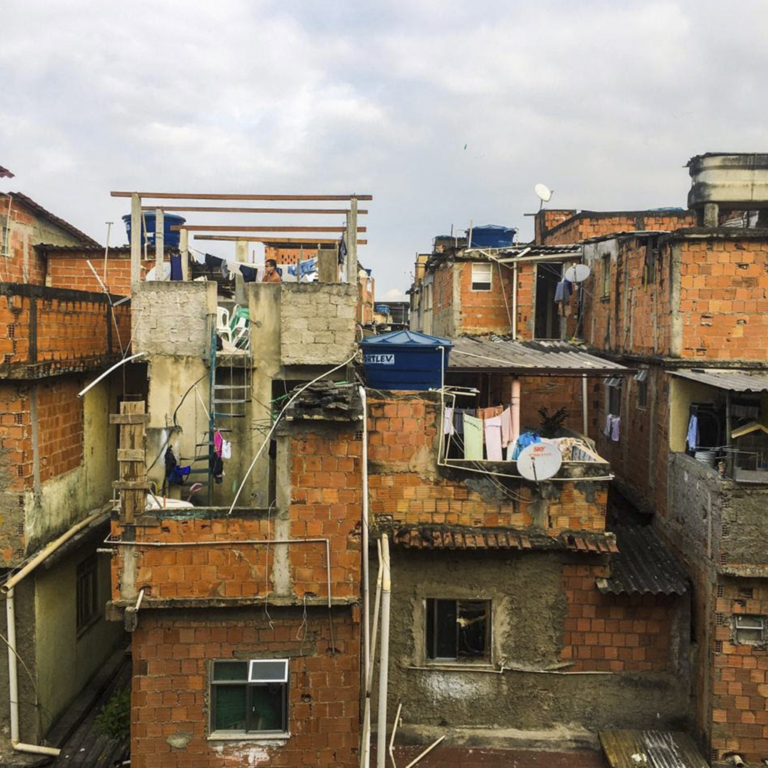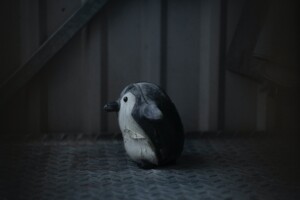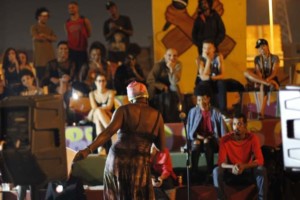Building the Barricades: the Mental Health Impact of Violence in Rio’s Largest Favela
An international research project investigating the impact of armed conflict and urban violence on the mental health and well-being of the residents of Maré, Rio de Janeiro’s largest favela complex.
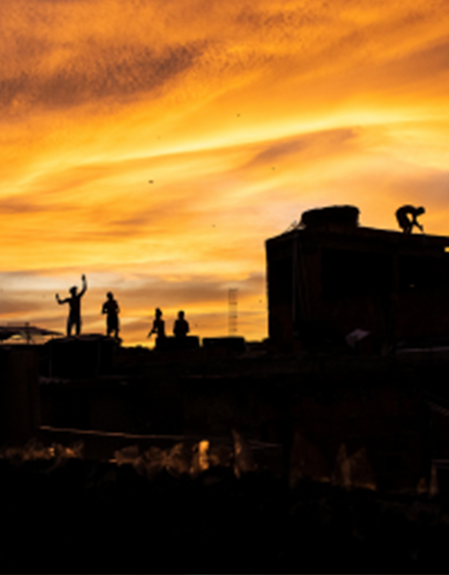
Project Overview
Maré’s 140 thousand residents face a host of stress factors: absence of the state and welfare, limited access to basic services and cultural institutions, socio-economic exclusion, among others, as well as being largely controlled by armed drug gangs and local militias. This international research project, a partnership between Redes da Maré and People’s Palace Projects, set out to better understand these issues to inform and guide responses throughout the community.
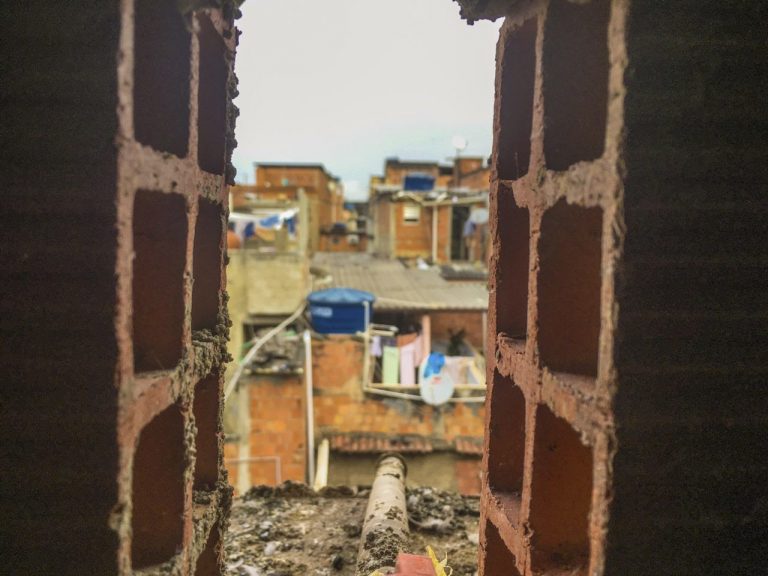
Methodology
The research team surveyed 1,400 Maré residents over the age of 18, including 200 active drug users living on the streets or at risk of homelessness. They conducted in-depth face-to-face interviews and organised focus groups, mapping local health services, social services and cultural activities that were recognised by residents as support networks that could improve their well-being.
Between June to October 2020, the research team also conducted three sub-studies, across social sciences, health and culture, to better understand the impact of the Covid-19 pandemic on the residents’ mental health, well-being, available cultural activities and income.
In addition to familiar research tools from medicine and social sciences, the project used the arts to produce narratives and images that reflect on and challenge the stigma and social exclusion associated with young people from the favelas and peripheries.
The acclaimed Brazilian anthropologist Luiz Eduardo Soares also wrote a separate study of the narrative produced by the artists on the research team, who were working with drama, music, poetry and photography.
Main findings
The study revealed that mental suffering was rife in the area, with post-traumatic stress, anxiety, depression and suicide attempts showing as common disorders. Below you can see the extent of the findings.
Rema Maré
Building on the findings of the study, Rema Maré was the first-ever mental health awareness campaign launched in the favela complex. The campaign was centred around a mental health Awareness week, which took place from the 23rd to the 28th of August, 2021, and featured various cultural activities, debates and interventions across the different communities that make up Maré, including an open air cinema for children, arts workshops and distribution of booklets on mental health service in the territory.
Arts Outcomes
Together, the study and campaign brought many wonderful and creative results to life in the area.
Live Performance
Directed by Paul Heritage, A Poetic Immersion in 10 Movements brought to stage five poets from Maré and neighbouring favelas of Rio and musician Rafael Rocha. A powerful play about violence, racism and mental health. The performances took place during the mental health awareness week, followed by debates with local social workers and policymakers.
Audio Drama/ Becos podcast
Over the first five months of the Covid-19 pandemic, six poets from Maré took part in online creative writing workshops led by People’s Palace Projects’ artistic director, professor Paul Heritage (Drama, QMUL) and Welsh theatre director Catherine Paskell (Dirty Protest).
Collaboratively, the young artists produced Becos, an audio drama in four acts, which is now available wherever you get your podcasts. The story is about joy, opportunities, violence, racism and injustice, and the resilience built by poor Brazilian communities every day. With poetry and music, the six young artists from one of the largest favelas in Rio de Janeiro, guide us through the alleyways of Maré.
LISTEN TO BECOS ON SPOTIFY (In Portuguese)
Music
Musician Rafael Rocha, who created the Becos soundtrack, also produced an album inspired by the audio drama’s creative process, titled Satelite. Its 11 original tracks explore favela sounds and feature the poems and the manifesto written for Becos.
Photography
During the lockdown, residents of Maré were encouraged to document what they saw through their windows and entered their photos and text in a virtual competition. The finalists were selected for the digital arts exhibition A Maré de Casa curated by visual artist Tatiana Altberg and researcher Raquel Tamaio. On the same site, six young photographers also documented during four months their daily lives via written and photo documentation.
Building the Barricades and Rema Maré in the news
More than 300 articles were published about this project by Brazilian and International media that includes National TV programmes, radio, newspapers, news websites.

